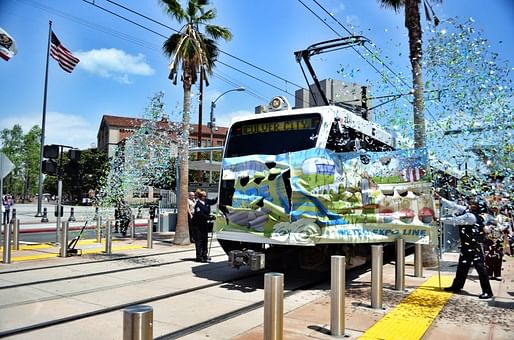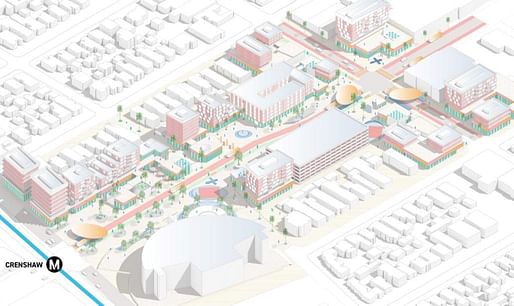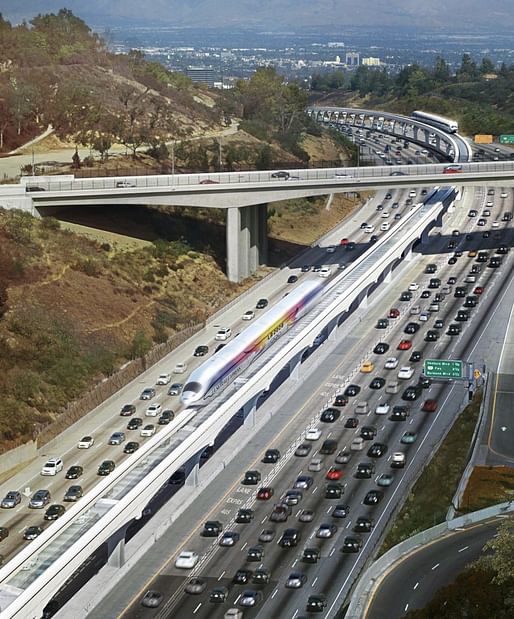

Los Angeles has moved a step closer to implementing free public transport, with the Los Angeles Metropolitan Transit Authority approving a program that will give free bus and train travel to students and low-income users. The 23-month pilot program will begin in August 2021 for students, and for low-income users starting January 2022. The move will benefit a significant number of L.A. public transport users, with estimates that 70% of the Metro’s passengers are low-income users earning less than $35,000 per year, the highest percentage of any public transport system in the United States.
It is expected that the first phase of the pilot, covering K-12 and community college students, will cost the city $49 million in lost fare revenue, while the second phase covering low-income users will likely need federal funding to proceed. An L.A. Metro spokesperson estimates that the total plan could cost $321 million. Meanwhile, to compensate for the heavy decline in passengers during the COVID-19 pandemic, Congress has poured almost $70 billion into public transport relief funding.

The L.A. Metro currently offers discounts to people who make $49,450 or less per year, people aged 62 and older, veterans, people with disabilities, K-12 students, and people in college or vocational schools. The new pilot scheme will allow the Metro to understand the practicalities of offering the entire public transport system free at the point of use for all passengers, a move that is supported by 86% of Metro riders, and 80% of non-Metro riders according to a survey of 46,000 respondents carried out by L.A. Metro.
If L.A. Metro implement the pilot, they would become the largest transit agency in the world to adopt a free public transport program. As Los Angeles is among the most unequal cities in the United States by income, supporters of the new plan say it will make public transportation, and the city itself, more equitable and accessible for low-income citizens.

The American Public Transportation Association points to a range of benefits to public transport versus private alternatives. A person who takes public transport is 90% less likely to be involved in an accident as opposed to commuting by car, while a trip on public transport emits 55% fewer greenhouse gas emissions than a private car trip. As we discussed in a recent feature article on air pollution, an decrease in car use in cities also leads to a reduction in street-level air pollutants, a point relevant to Los Angeles’ status as the most air-polluted city in the United States.
Across the world, approximately 100 cities have implemented free public transportation. Last year, Luxembourg became the first country to make its public transport system free for all users, while dozens of French cities including Paris offer free public transport for some or all users. In the United States, Kansas City is currently rolling out a Zero Fare Transit plan, while Washington D.C. and New York City are exploring the idea. In March of this year, the Freedom to Move Act was introduced to Congress by Senator Ed. Markey and Congresswoman Ayanna Pressley, which seeks to accommodate fare-free public transport across the United States.
1 Comment
Great news! Hope to see this trend spread across the country. Now to enact some serious no growth zones.
Block this user
Are you sure you want to block this user and hide all related comments throughout the site?
Archinect
This is your first comment on Archinect. Your comment will be visible once approved.